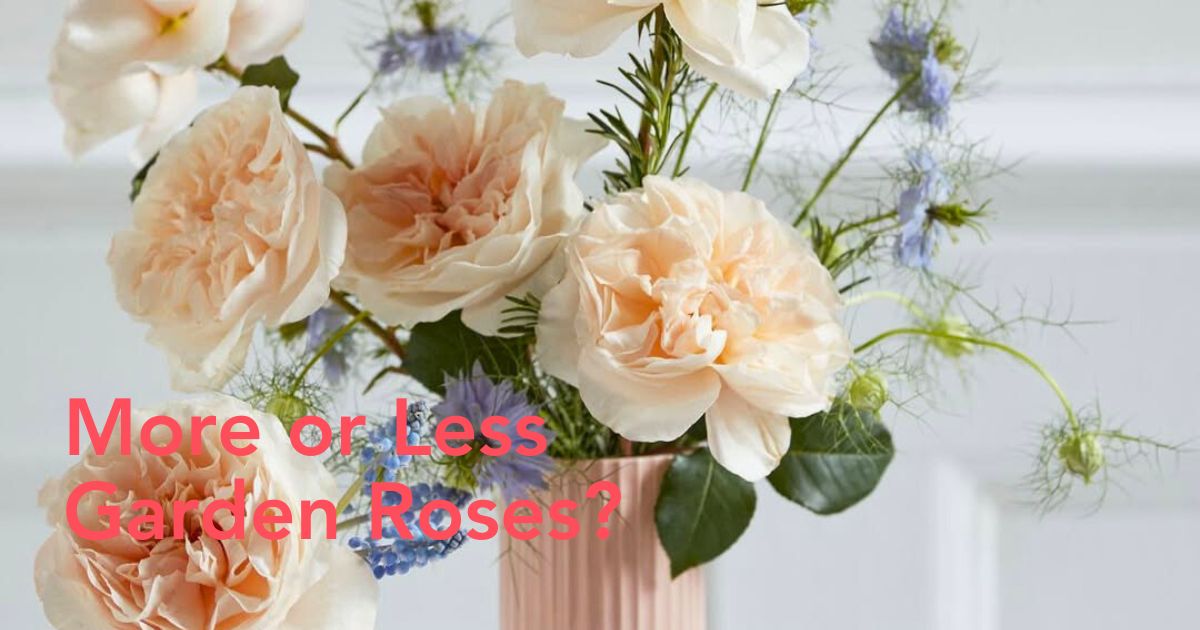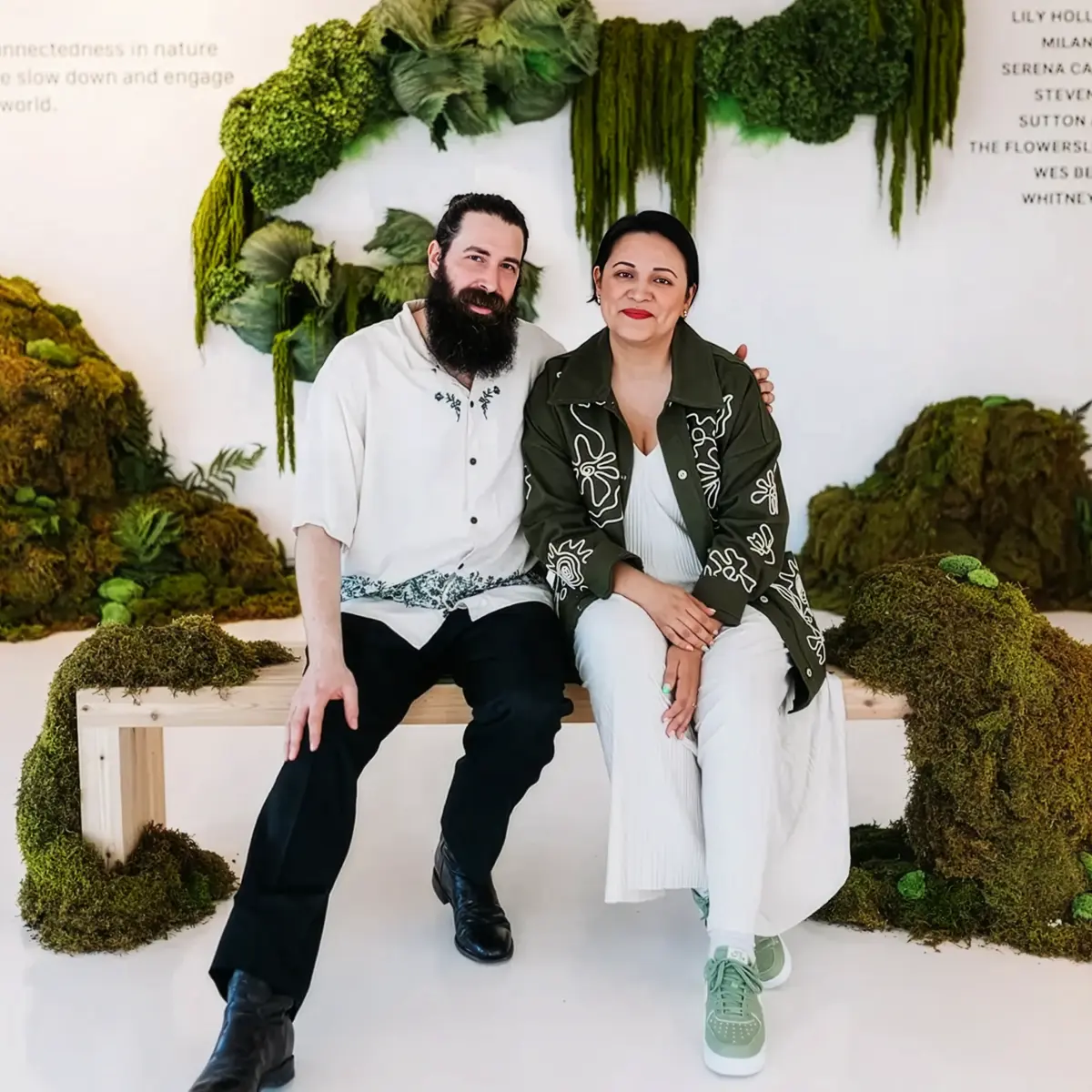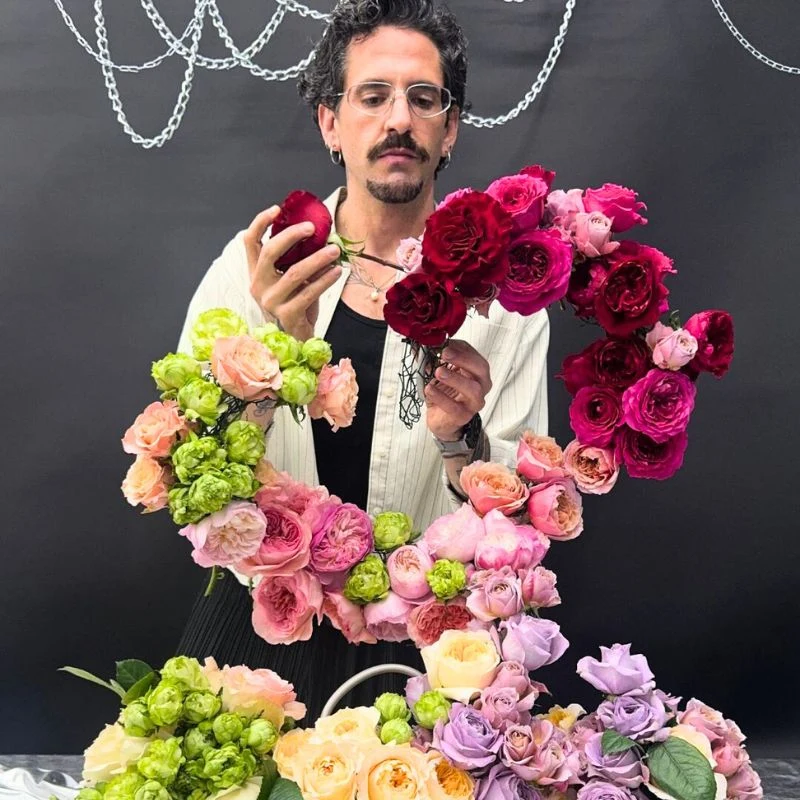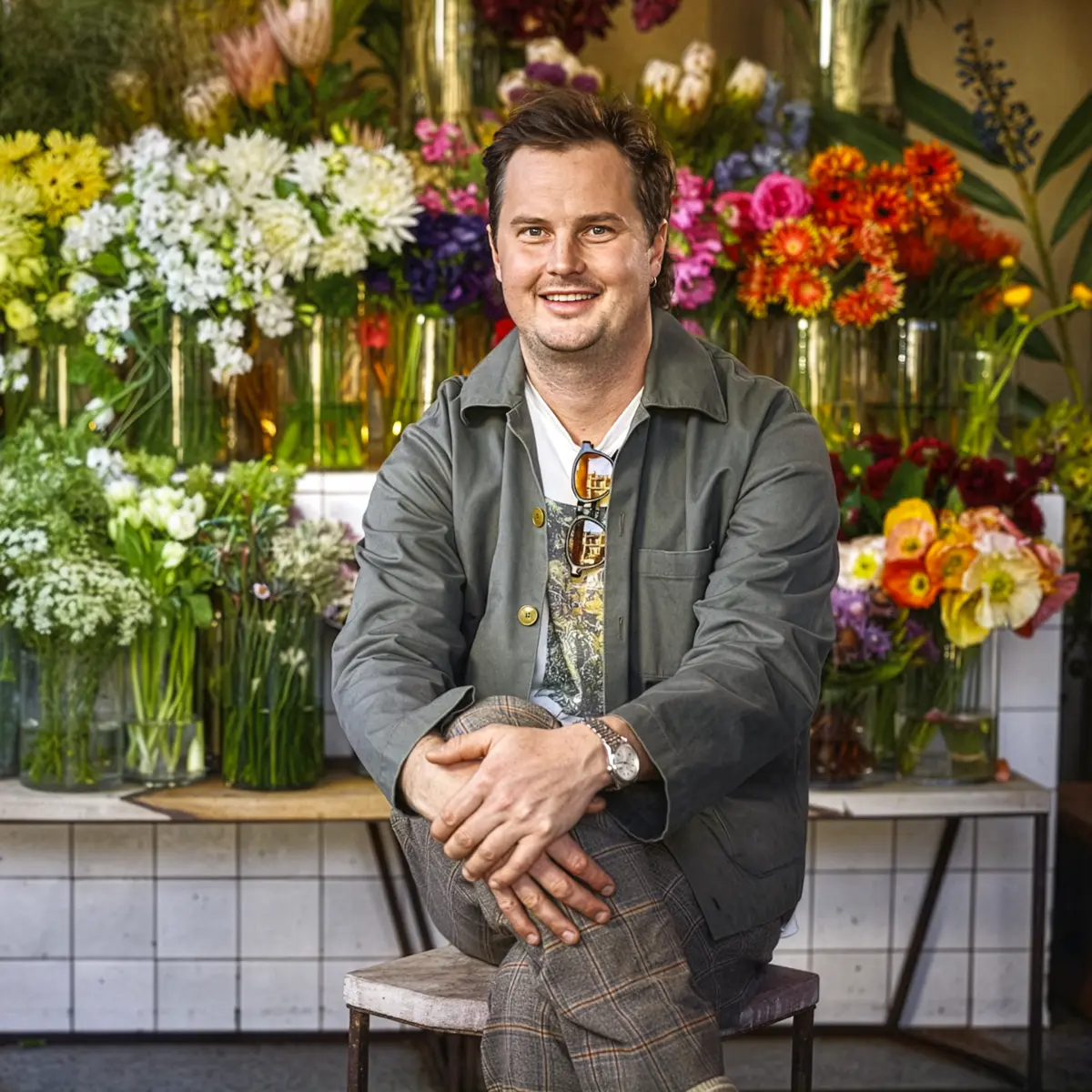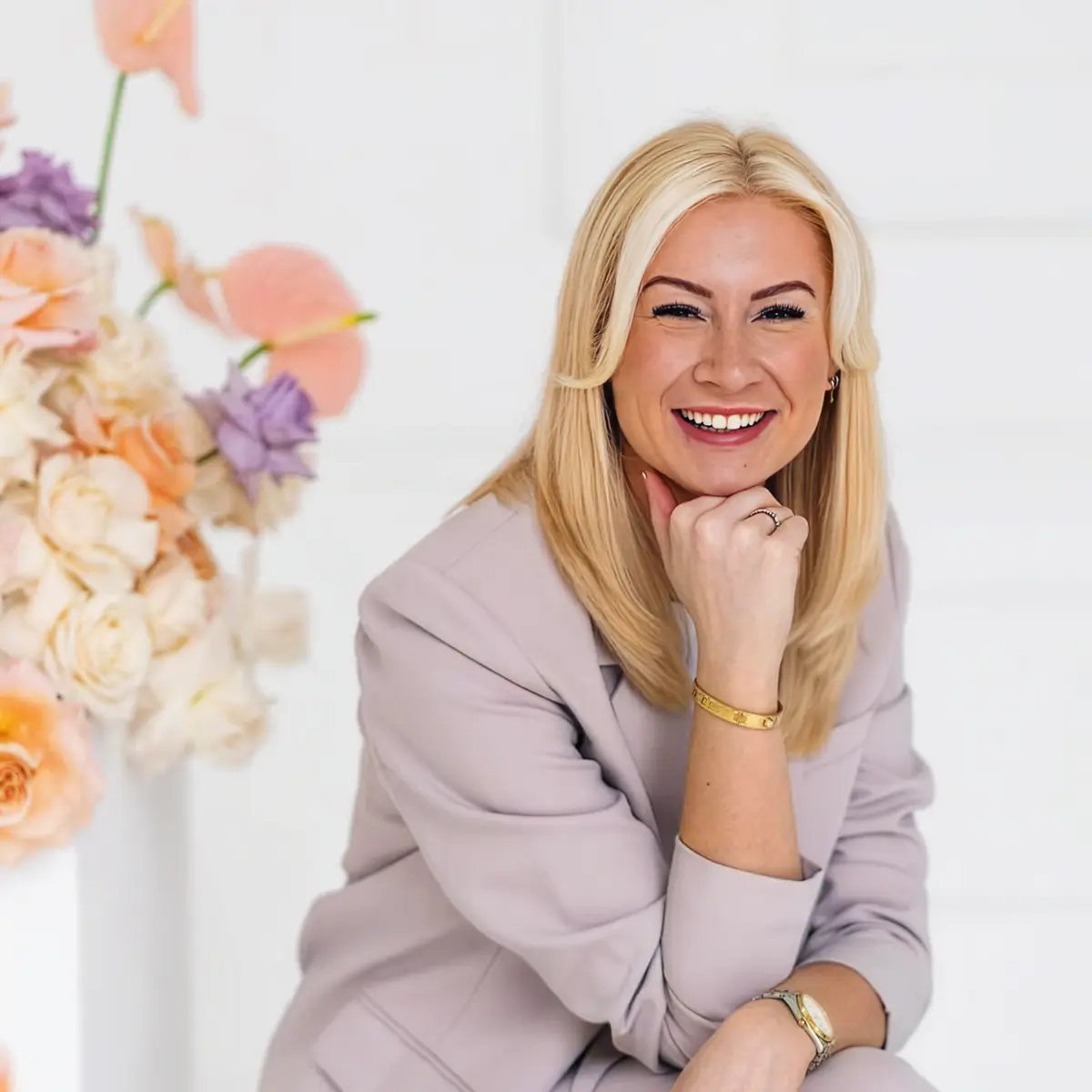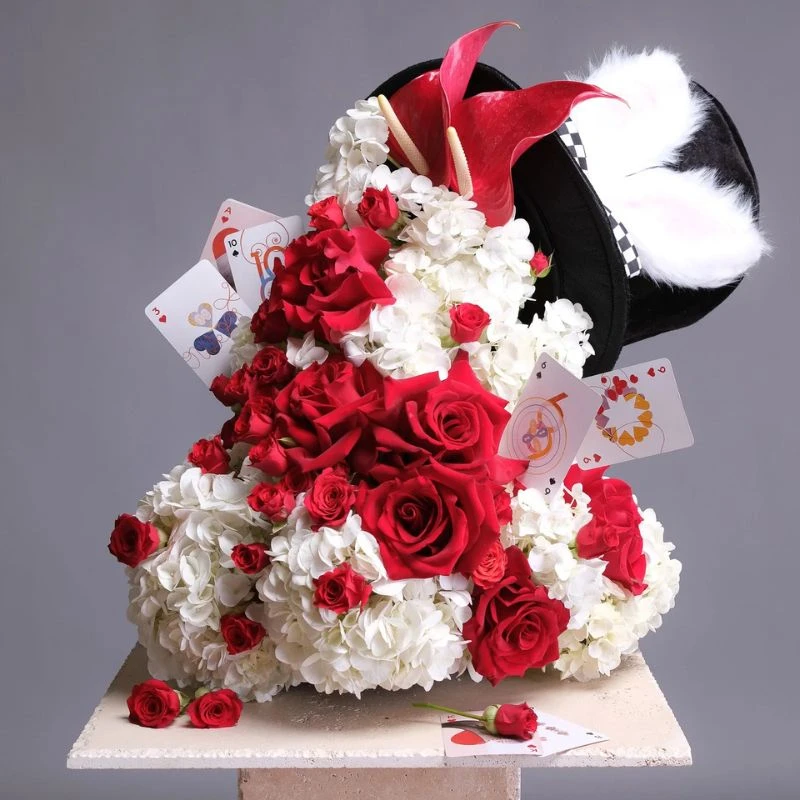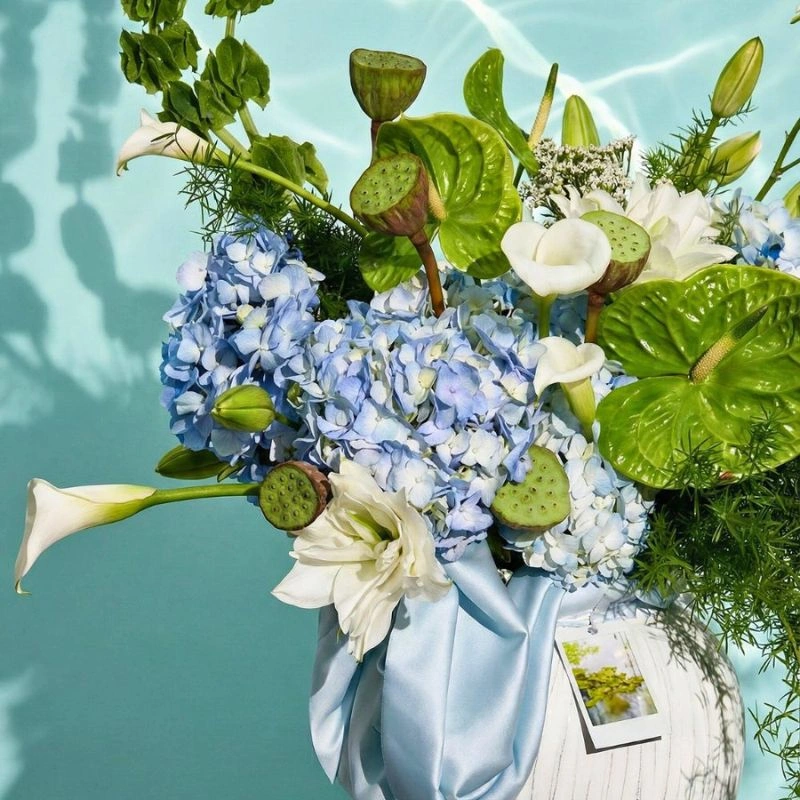Garden roses are widely appreciated in floral design for their range and adaptability. They can be used to create compositions that are either restrained and structured or layered and visually complex. As designers refine their personal approach, many identify with either a minimalist or maximalist style.
Minimalist arrangements focus on form, spacing, and clean lines, while maximalist compositions prioritize fullness, a variety of textures, and a more expressive use of color and shape. Alexandra Farms provides a diverse selection of garden rose varieties that suit both preferences, making it possible to achieve clarity or complexity without compromising quality.
Minimalist Arrangements - Clean Forms, Soft Garden Rose Tones by Alexandra Farms
Minimalist floral design is based on clarity. These compositions avoid excess, focusing instead on balance, form, and space. In this context, garden roses are chosen not for their fullness, but for their presence and silhouettes. Often presented with few companions or as a single stem, minimalist arrangements highlight the rose’s natural curve, subtle texture, and soft color. Alexandra Farms shares five (of the many) garden rose varieties that can work perfectly for minimalist arrangements:
Rose Leonora
Its snowy white tone and soft scent make it suitable for understated settings.
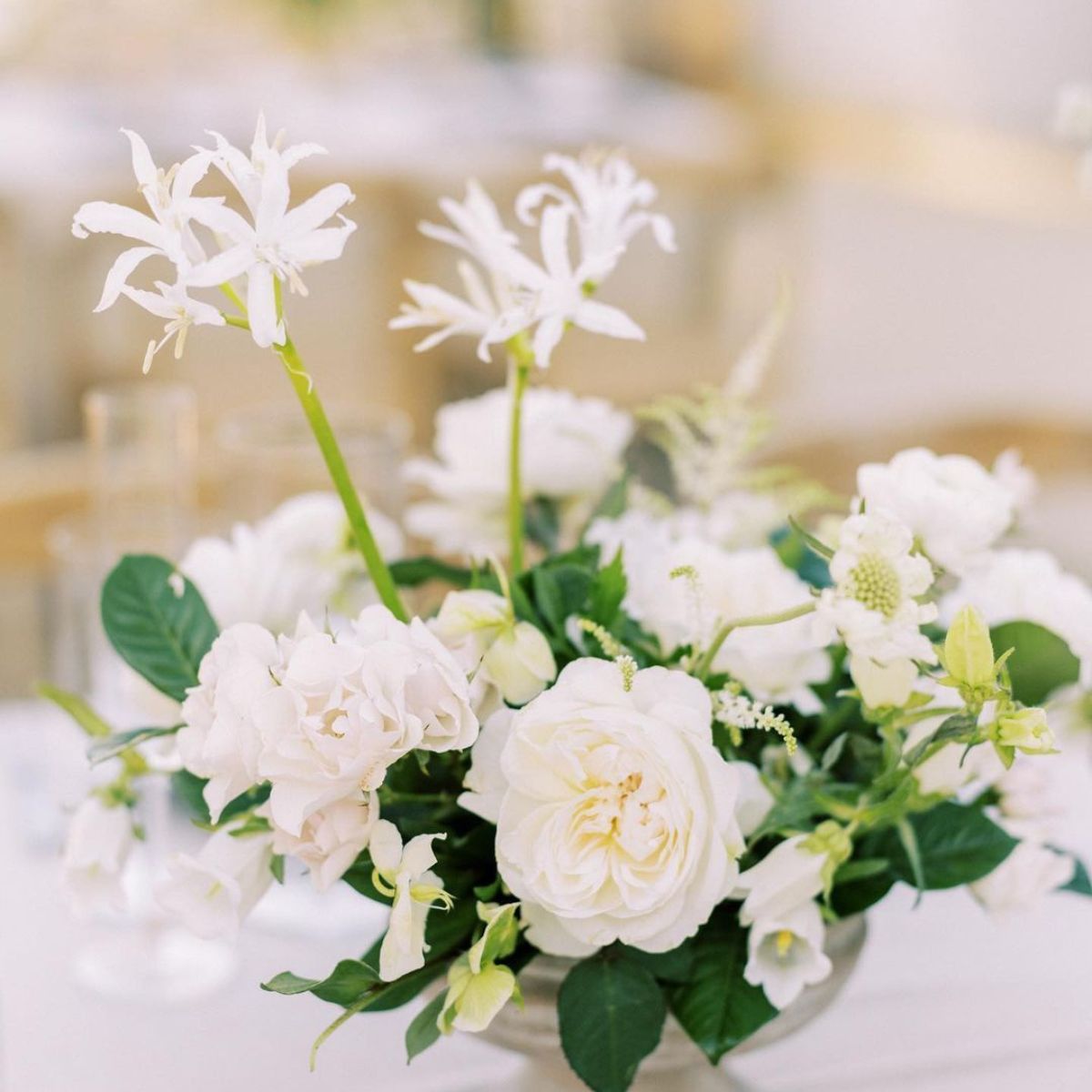
Rose Juliet
With its peachy blush tone and neat form, it works well in quiet compositions.
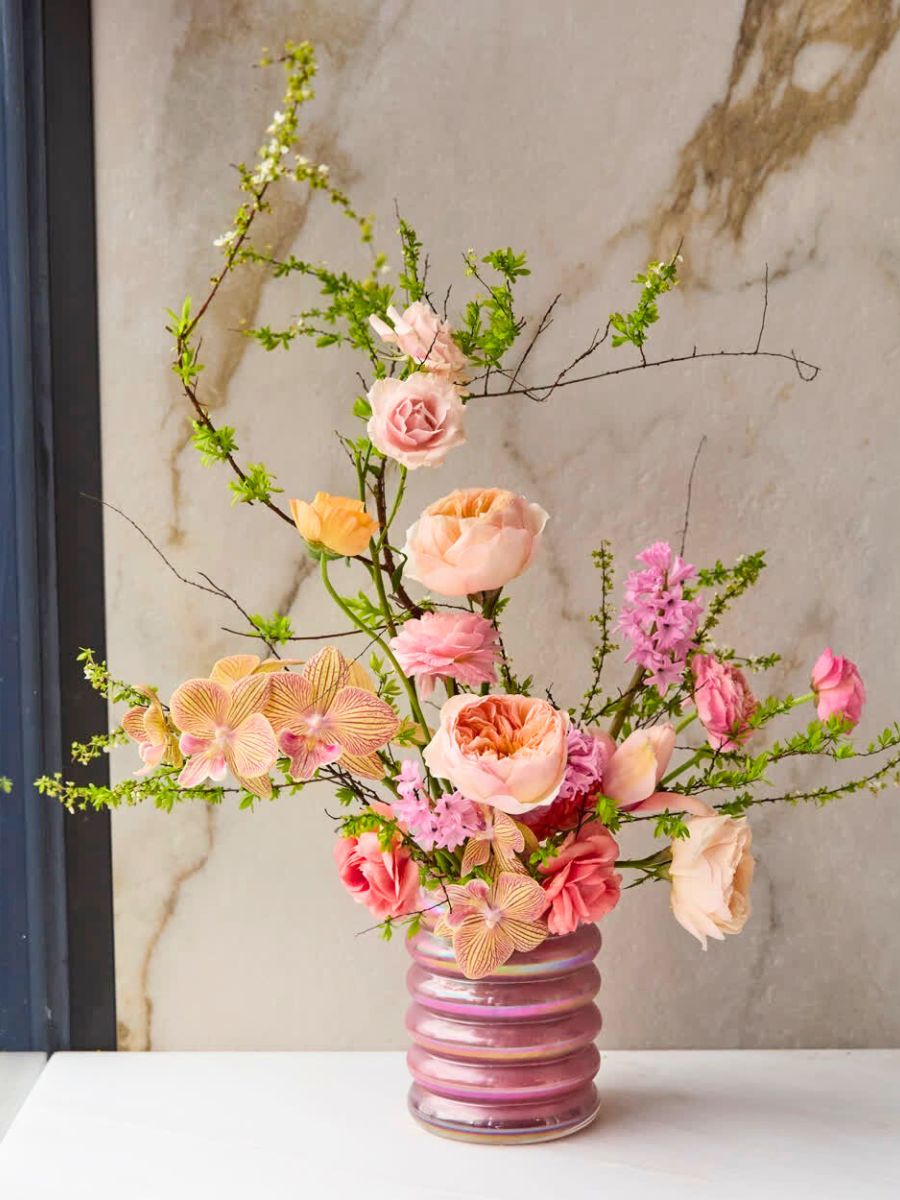
Rose Princess Miyuki
A perfect white-pink toned flower with structured petals, lending itself to minimalist tablescapes.
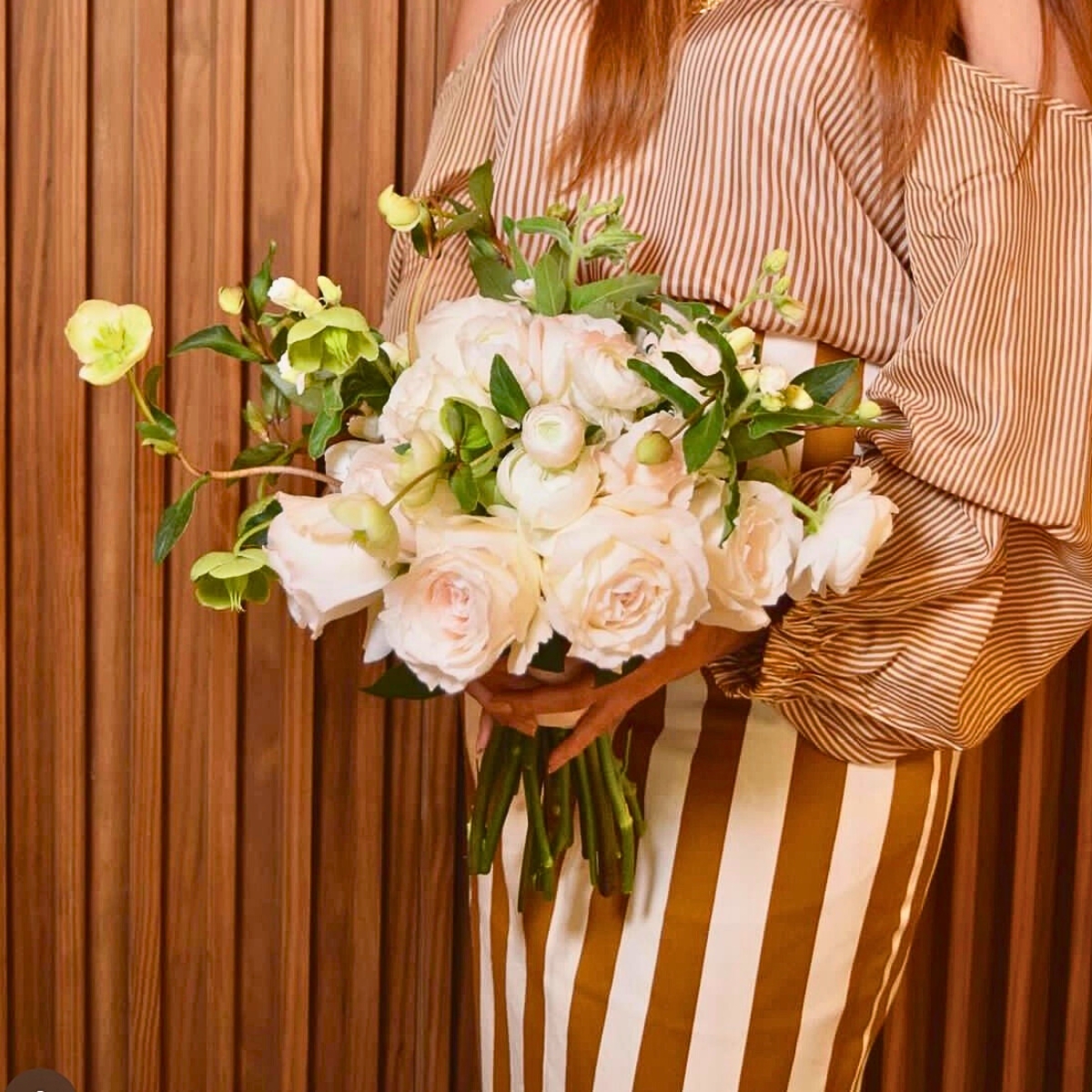
Rose Tsumugi
Pale pink and evenly rounded, its presence is subtle but intentional.
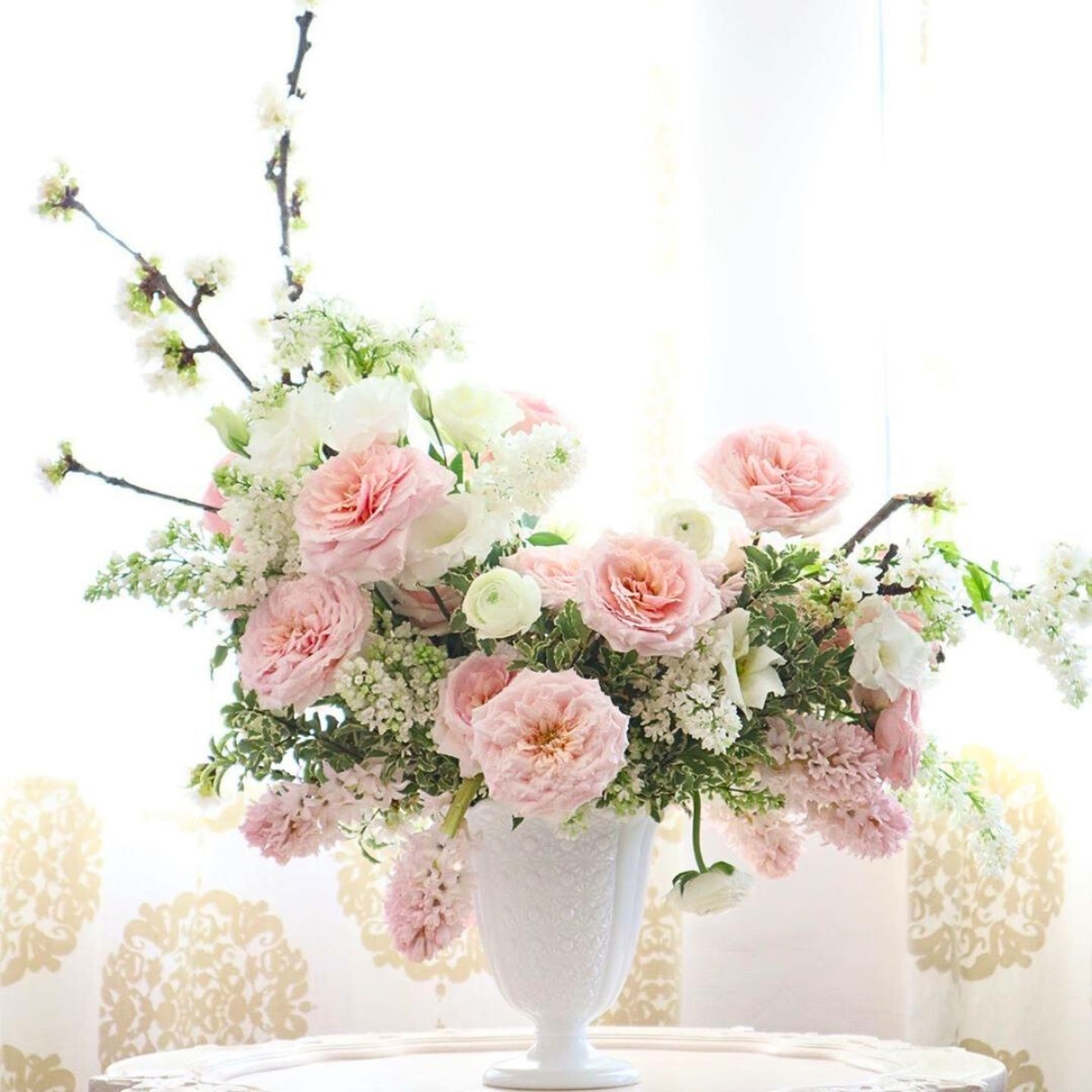
Rose Golden Mustard
This garden rose has a muted tone that adds depth without dominating a design. Take a look at its softness, perfect for creating minimalist designs.
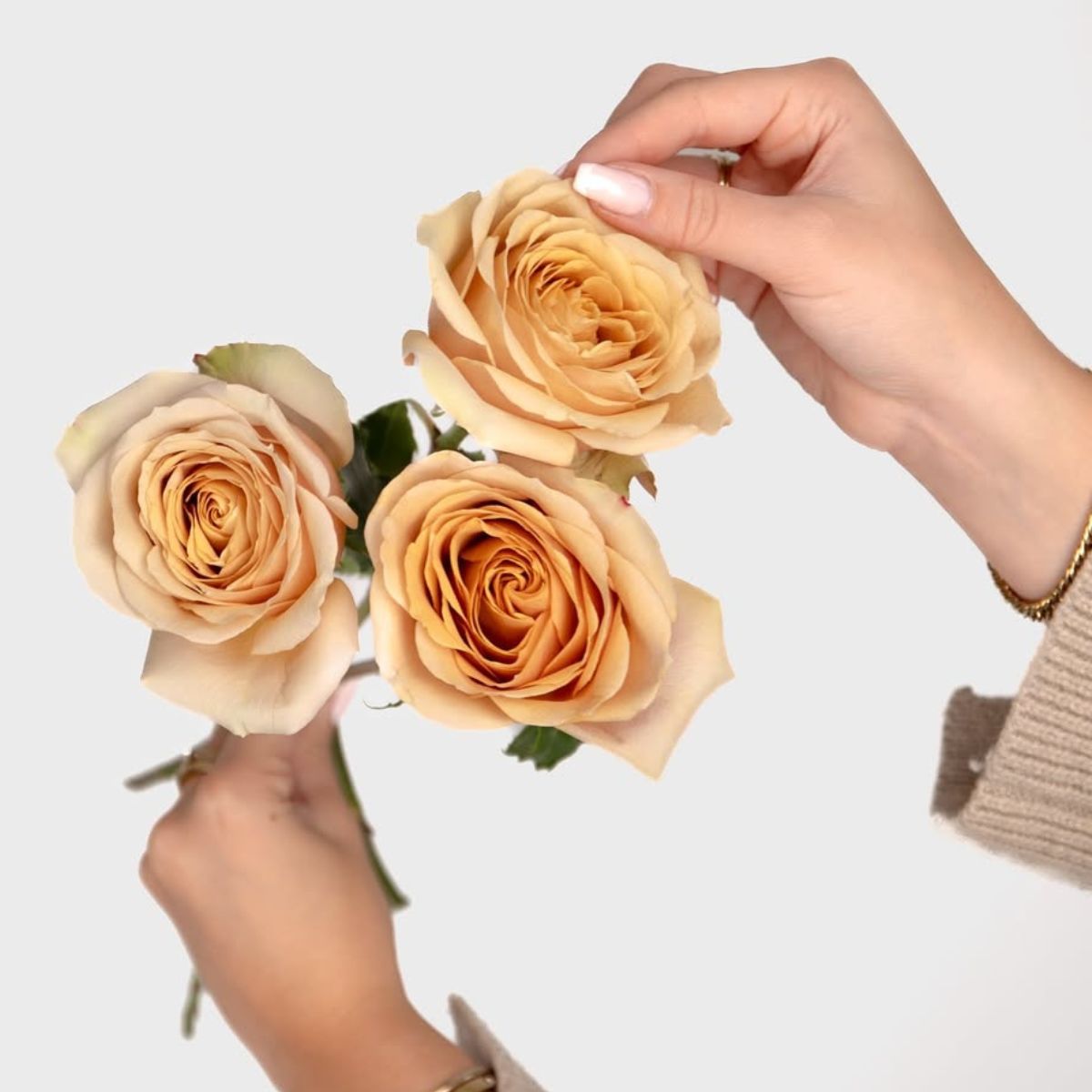
A pared-back use of garden roses allows their individual character to stand out. Rather than filling a design with volume, a simpler composition shifts focus to the form, color, and line of each rose. This approach gives space for the natural shape of the flower to be noticed, and encourages a more measured visual experience.
Minimal use does not mean less impact—it means a more deliberate one. When fewer flowers are chosen, each has to earn its place, making the result more focused and grounded. For florists and designers, working with restraint can open up a more thoughtful way of arranging, where the eye is guided gently rather than overwhelmed. The simplicity becomes part of the statement.
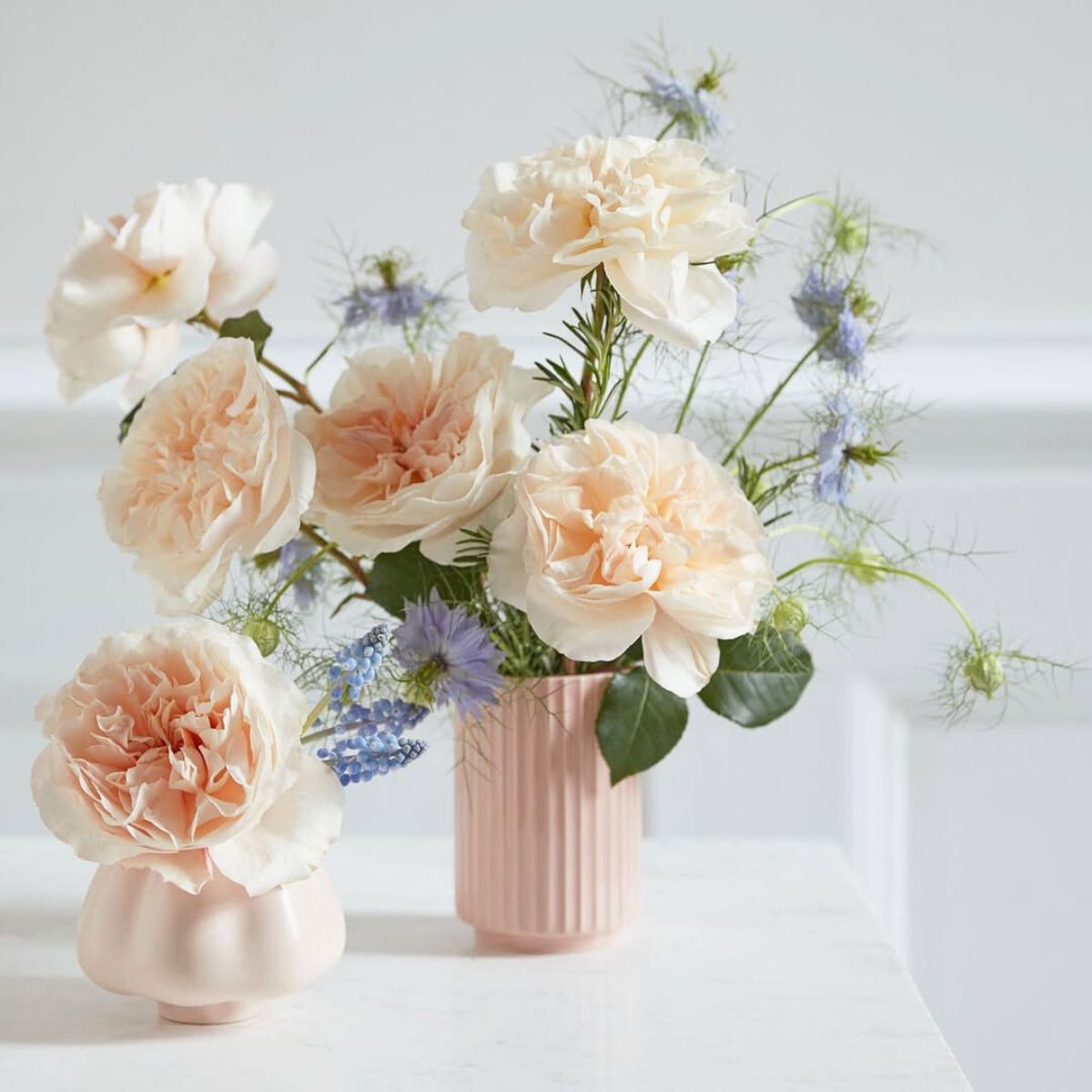
Maximalist Arrangements Based on More Garden Roses, Texture, Color, and Volume
Designs based on maximalism lean towards more volume, variety, and visual depth. Rather than holding back, they explore the full potential of form and color, combining multiple garden rose varieties to create stunning arrangements. These are built for impact, not through extravagance, but through careful layering.
Garden roses by Alexandra Farms, with their full heads and natural variation, respond well to this trend. When used in larger numbers, their textures build on one another, creating structure and rhythm without losing cohesion.
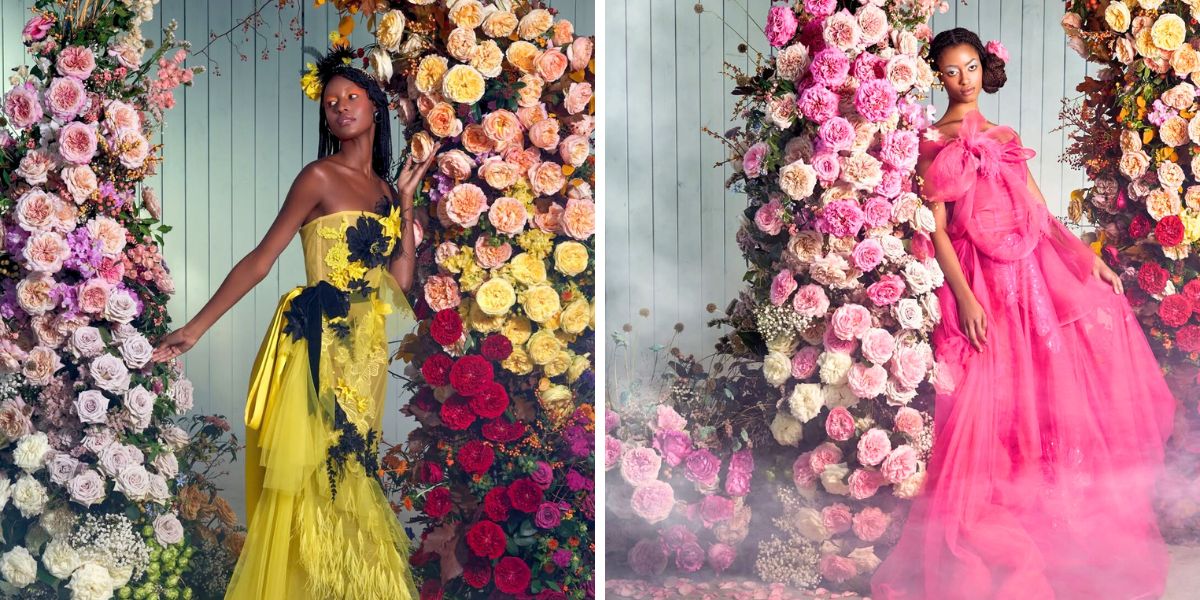
It’s an approach that favors fullness not as excess, but as a design choice that welcomes complexity. Five varieties you'll love for a maximalist look are:
Rose Constance
A lush pink rose that opens widely, offering volume and presence.
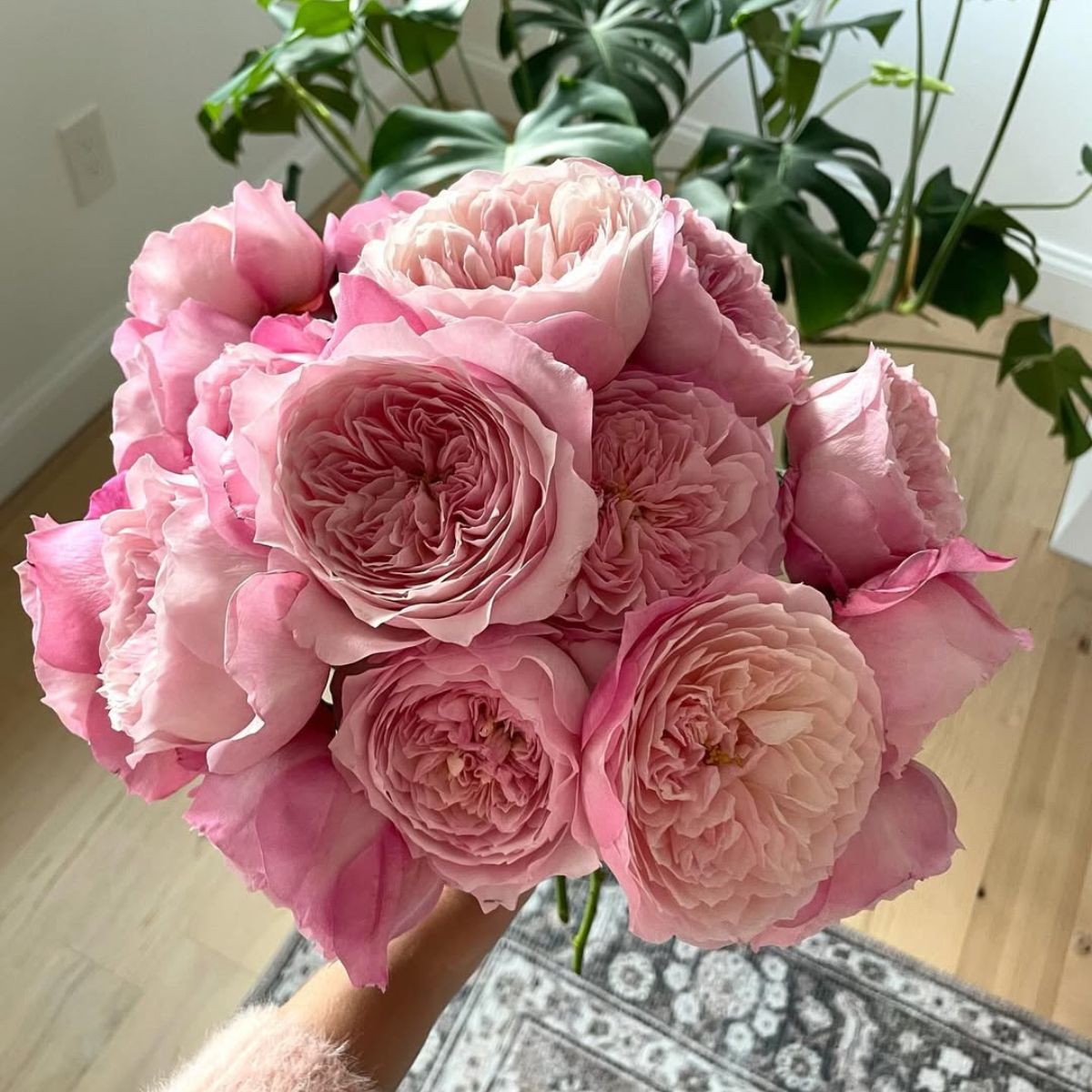
Rose Princess Aiko
Radiant and layered, ideal for colorful, energetic arrangements.

Rose Darcey
A deep red-pink rose that adds weight and depth.
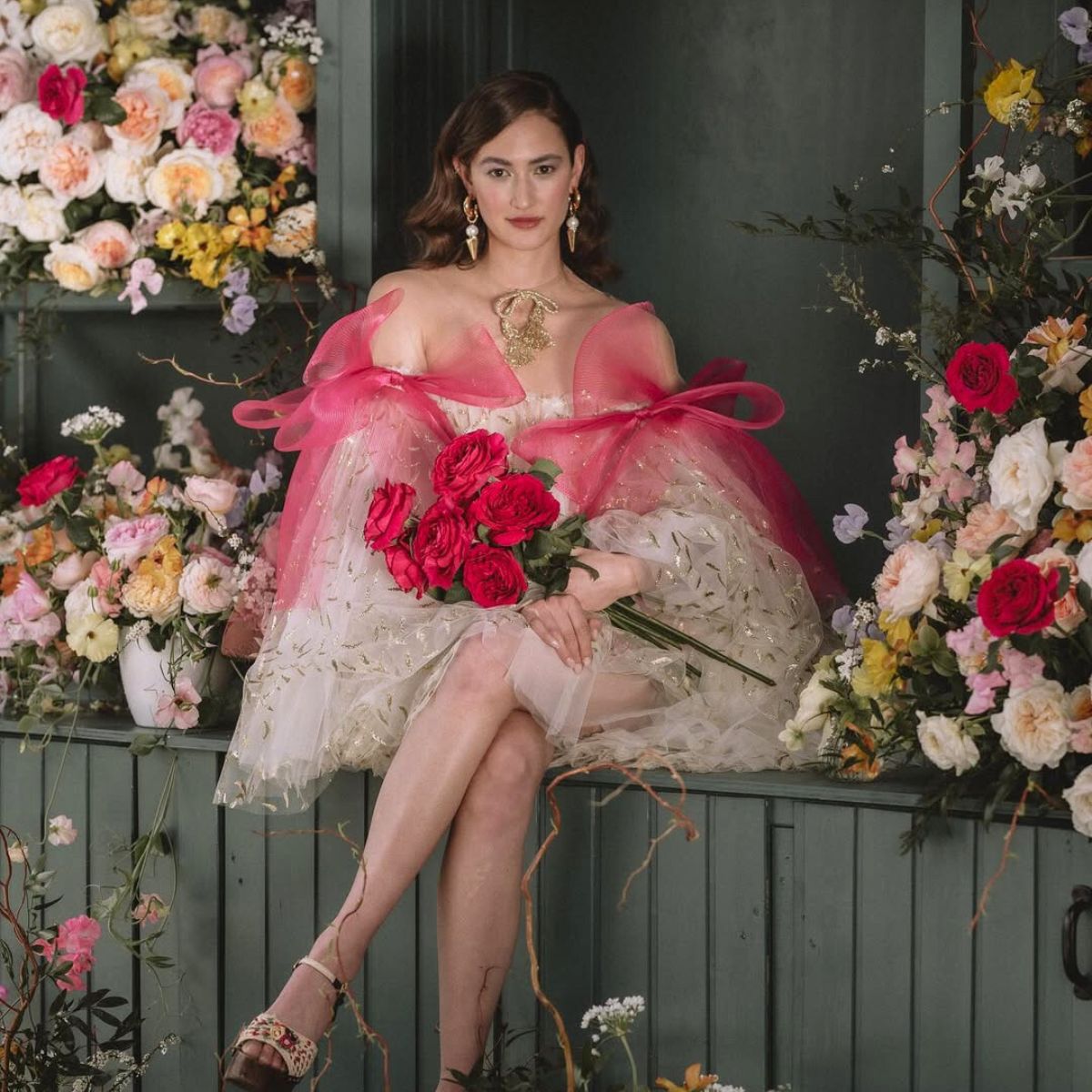
Rose Vitality
Bright cream with a generous bloom, it brings light to fuller designs.
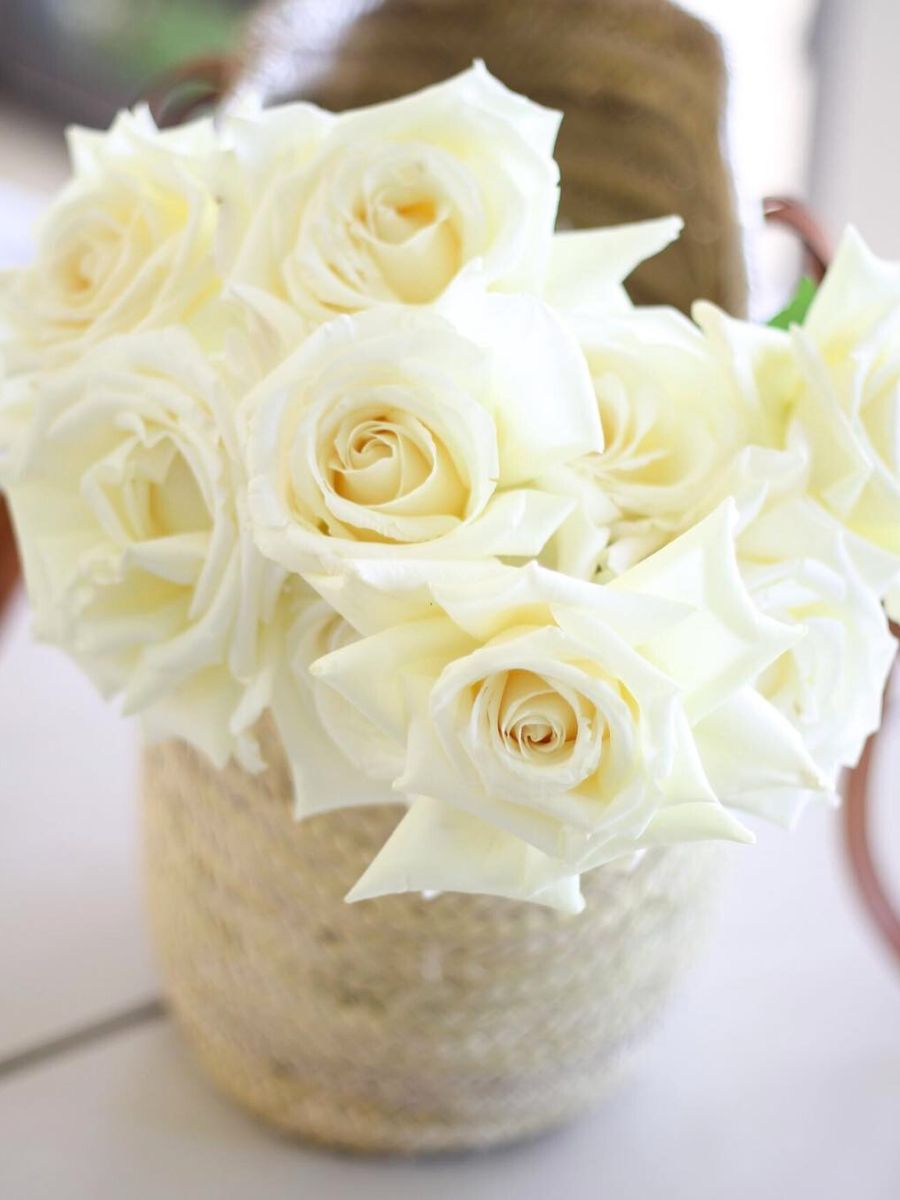
Rose Millicent
Rounded and petal-heavy, with a fierce and bold color, it adds structure and bright color.
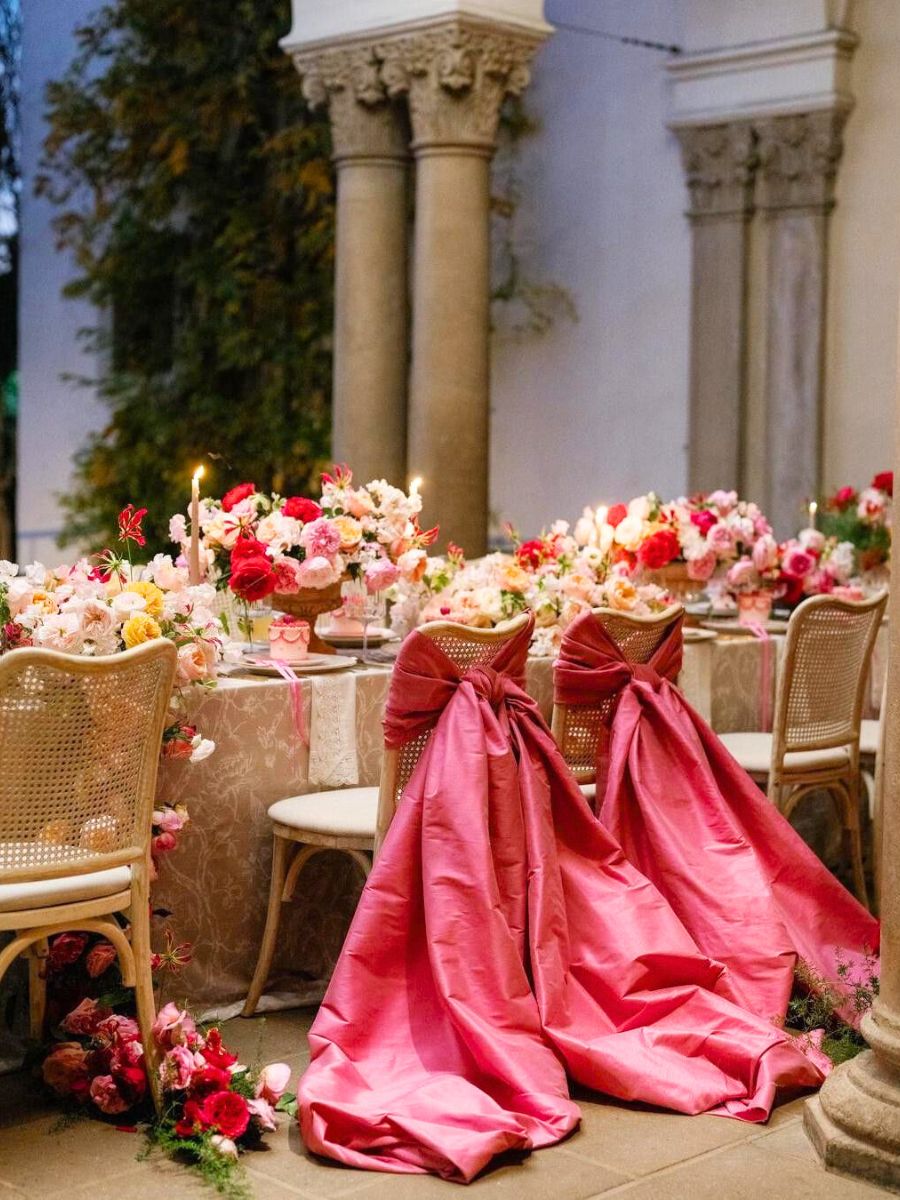
Rose Edith (Auspluto), Rose Capability (Ausapply), Rose Charity (Auswasher), Rose Beatrice (Auslevity), and Rose Darcey (Auschariot)
What’s often overlooked is that many garden rose varieties are adaptable across both minimalist and maximalist design approaches. The same rose can serve a different purpose depending on how it’s used. It’s not only about quantity but about how shape, color, and texture interact within a composition.
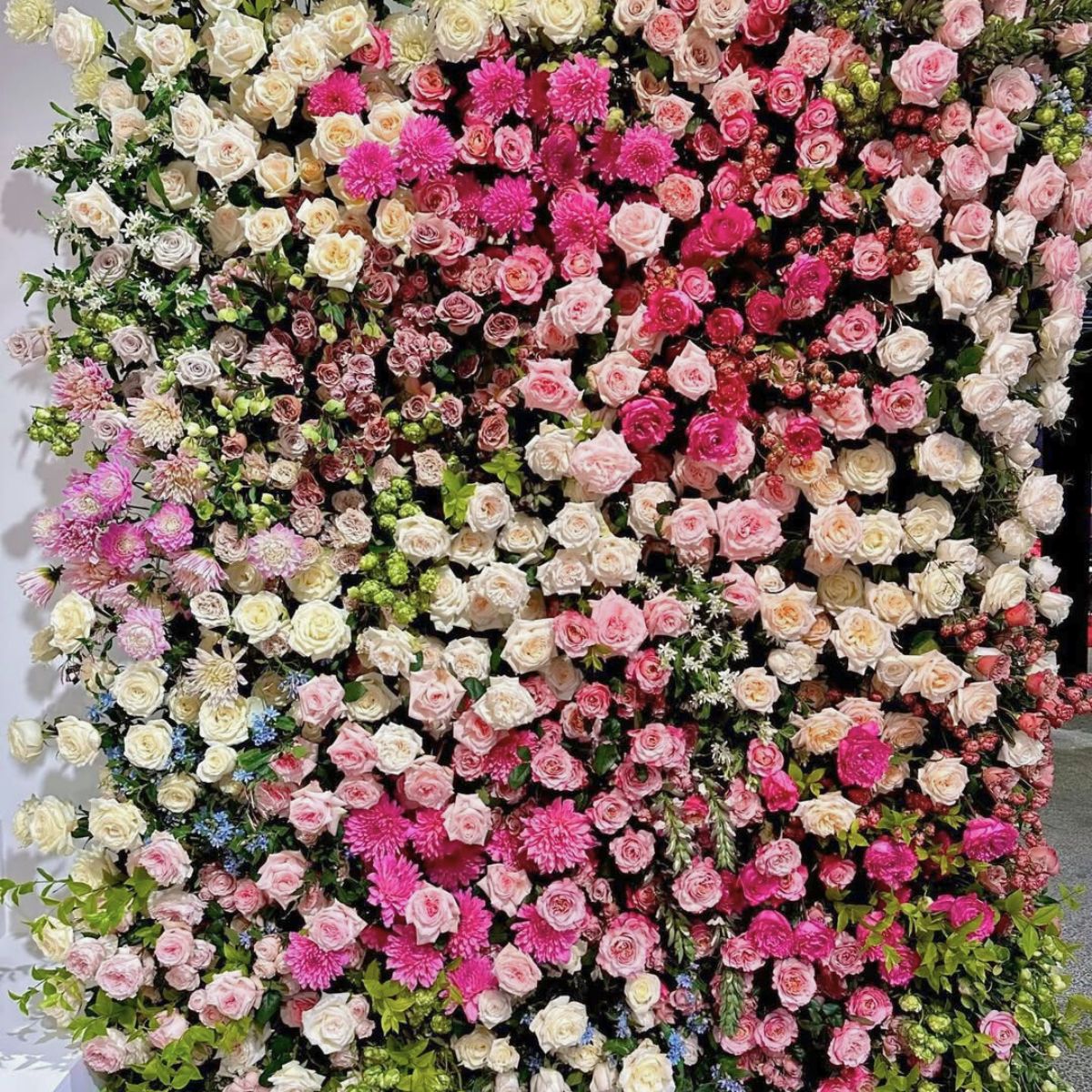
Pale tones and more structured garden roses might lend themselves to quieter designs, while fuller forms and saturated colors naturally hold their own in more elaborate settings. This versatility allows designers to work intuitively, selecting roses based on how each element contributes to the whole. These are only five of the incredible assortment of garden roses they have.
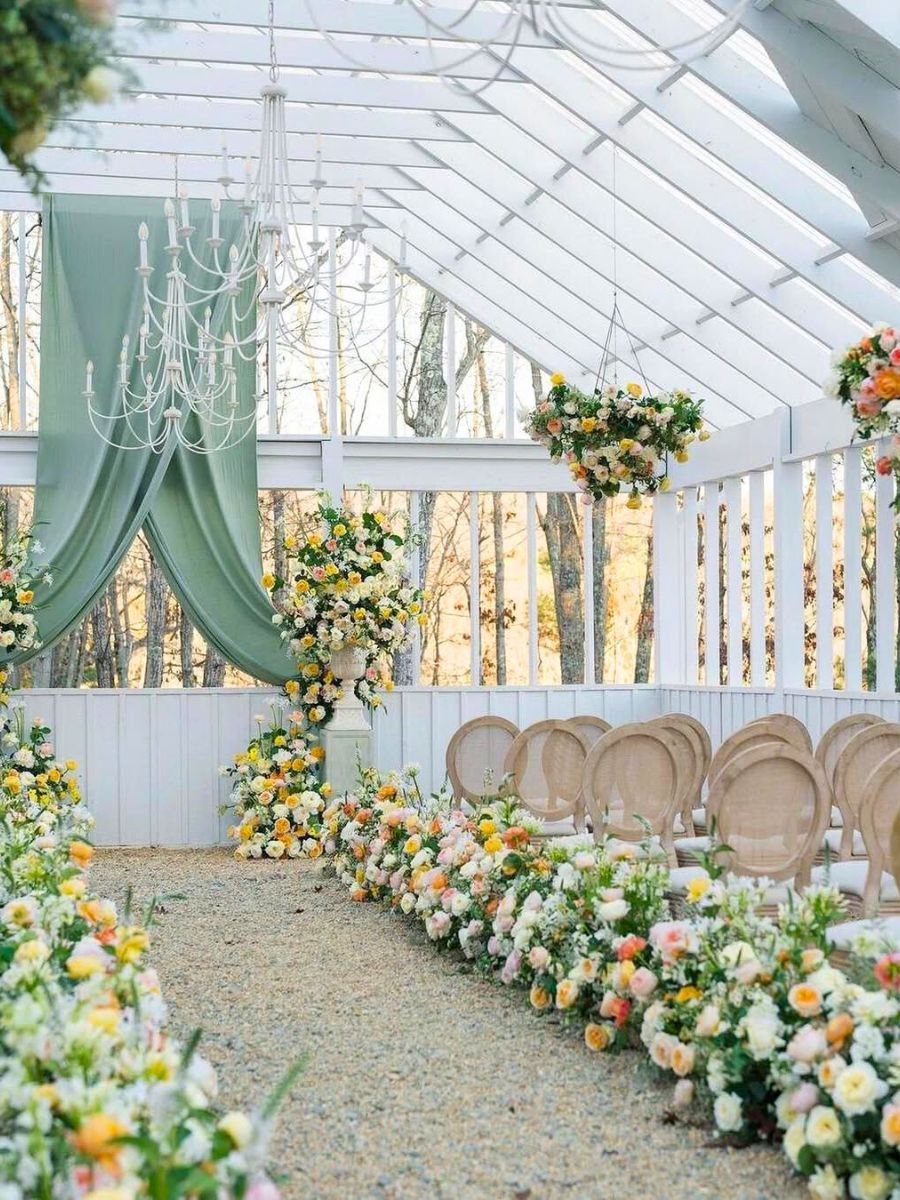
Some roses shine best when given space to stand alone, while others bring depth and richness when layered together. One thing is certain—Alexandra Farms offers a range of varieties that can adapt to different design scales and styles.
Photos by Alexandra Farms.

